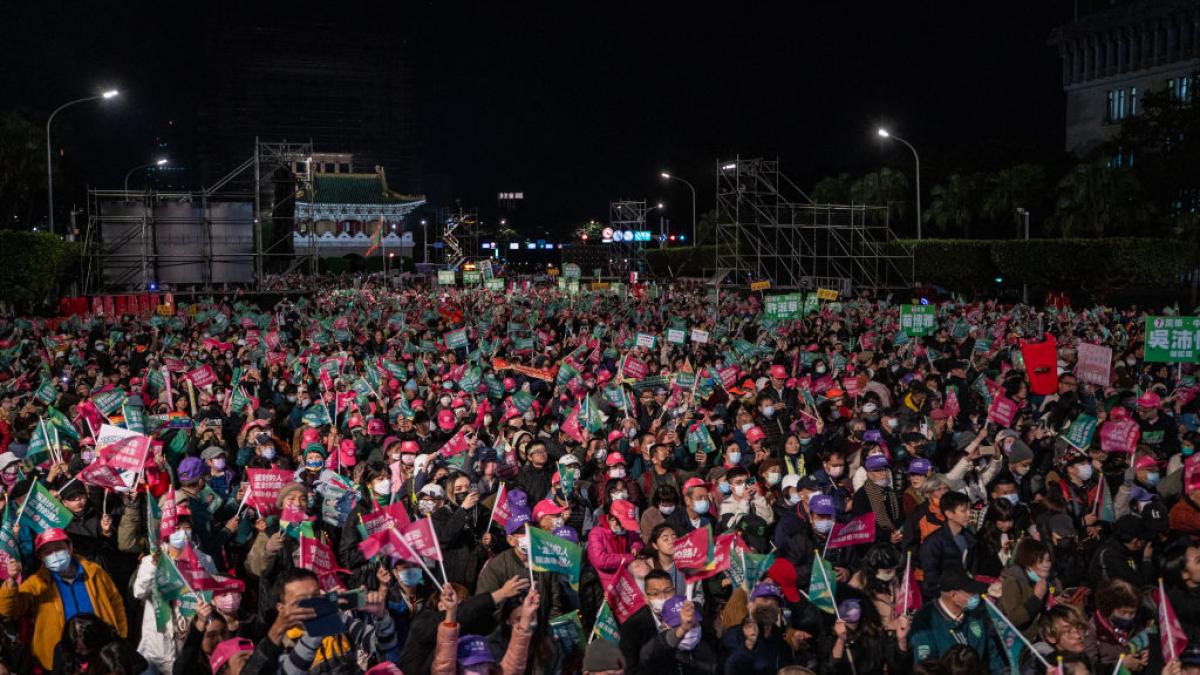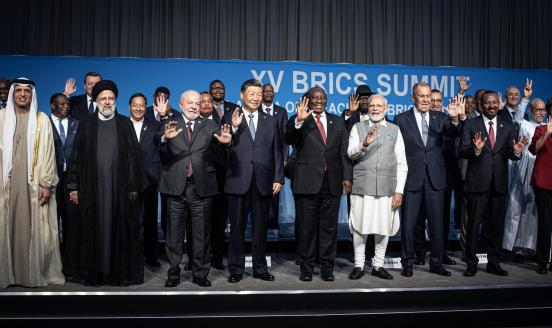Taiwan’s future economic direction hinges on the election outcome
Depending who wins Taiwan’s 13 January election, the island could swing towards closer relations with China, or entrench decoupling from China.

Taiwanese voters go to the polls in presidential and parliamentary elections on Saturday 13 January in the context of an economic upturn after a difficult first half of 2023. Exports, wages and stocks are all rising, though in 2023, GDP grew at a third of the rate seen during the COVID-19 pandemic – boom years for Taiwan.
Thanks to improved exports, growth is expected to double in 2024. Nevertheless, there are underlying tensions, including a falling population and increasingly unaffordable housing, coupled with stubbornly low wages. Taiwan’s longer-term prospects will depend crucially on the outcome of the three-way presidential race, in which the major question is whether Taiwan should deepen ties with China or seek to get closer to the United States and other partners, especially in Asia, but also the European Union.
For Taiwan, economics and politics cannot be easily separated. Foreign investors increasingly ask how interlinked Taiwan’s economy is with that of China, or more bluntly, how dependent it is on China. Economic dependence implies that reducing economic reliance on China will be difficult and costly. Taiwan has managed to reduce its exposure to China in the last few years, especially for foreign direct investment, but less so for trade. But the trend has not changed the basic fact: China remains the most important trade and investment partner for Taiwan.
The rest of Asia has grown in importance as a market for Taiwan since 2020. The proportion of exports going to the US has increased even more rapidly. Taiwan’s outbound investment has also grown fast but is no longer directed mainly towards China, but rather towards the US and the rest of Asia, with Europe remaining a more stagnant and distant destination.
Despite this diversification of Taiwanese trade, it is not clear how the island can further reduce China’s share given Taipei’s failure to conclude any significant bilateral trade agreements or join any new regional trade pacts, in part due to interference from Beijing.
Against this backdrop, the Vice-President of Taiwan’s ruling Democratic and Progressive Party (DPP), Lai Ching-te, who is also the DPP’s presidential nominee, is keen to maintain the current government’s strategy of promoting geographical diversification of trade and investment, mostly for national security reasons. Lai’s main rival in the election, Kuomintang (KMT; Chinese Nationalist Party) presidential candidate, Hou Yu-ih, is betting on improving economic ties with China. In particular, he wants to relaunch the economic cooperation agreements with China that the last KMT president, Ma Ying-jeou, did not manage to finalise during his second mandate from 2012 to 2016. The agreements would include more technological, financial and people-to-people cooperation, but previously fell victim to political tension.
The third candidate in the presidential race, Ko Wen-je, founder of the Taiwan People’s Party (TPP), takes a position in-between his rivals in a way that might be unclear to voters, which might be why he has appeared to lose ground in recent weeks. Still, his party is likely to be a significant force in the Legislative Yuan (Taiwan’s Parliament).
Beyond economic relations with China, the three parties have different views on energy policies and the green transition. In particular, the DPP remains adamant that nuclear will not serve as a transition energy to reach Taiwan’s bold commitment to achieve net-zero emissions by 2050 (announced by the DPP government in 2022). This is surprising since Taiwan relies heavily on coal partly imported from China.
On industrial policy, the TPP is the only party asking for diversification away from Taiwan’s dominant semiconductor industry. Where all parties seem to align, at least as part of their electoral campaigns, is on the need to improve social and labour policies in Taiwan, which still has the lowest minimum wage among developed Asian economies, though its income per capita has surpassed those of Japan and South Korea.
In summary, the elections are a crossroads for Taiwan’s economic direction as far as economic relations with China are concerned. Significant consequences could include a potential negative reaction from Beijing to a third mandate for a DPP government. The US reaction should also be watched, with President Joe Biden having announced that a US delegation will visit the island after the elections. Finally, the third party in the race, the TPP, might end up playing an important role in alliance building if neither the DPP or the KMT secures control of the Legislative Yuan.



